The days of the famous veterinary author James Herriot are in the past. Prevention rather than reaction is becoming the norm.
Today we have a new generation of professionals, who for a combination of reasons, are not going to own and run veterinary practices in the same way that the previous generation did.
The first reason is that lending rules have changed since the recession.
Young vets are not able to get access to the capital needed to become a partner in a veterinary business, removing this as a retirement option for older vets.
Secondly, the next generation of vets are the same as the next generation of farmers, and put a greater focus on a work-life balance.
They are looking for fixed hours, decent pay and a comfortable living. The third issue is farmers can now buy medicines online, get scanners in to do pregnancy tests on cows and ultimately disperse some of their hard earned cash to a wider field of servicemen/women.
Ultimately, that is taking from the more traditional revenue streams keeping large animal vets in business.
So, when a corporate veterinary company comes knocking on the door, it can be an attractive option for a vet that is looking at his or her options.
Many practices in the UK have already been bought by corporate vet companies. The Irish Farmers Journal visited practices belonging to two such companies; Independent Vet Care (IVC) and CVS. The third in the large animal world is Vet Partners.
CVS Group plc describes itself as the largest integrated veterinary services provider in the UK. It owns over 500 practices and has over 1,500 vets, 2,000 nurses and its year end revenue for 2018 was £327.3m IVC was formed later than CVS Group, but it bought 103 practices alone last year, almost two per week. VetPartners has 107 veterinary practices, with 4,750 employees working in more than 400 sites across the UK including its headquarters in York. It recently bought its first practice in Northern Ireland, Parklands Veterinary Group.
Bank finance alone cannot fund the rate of expansion and these corporate veterinary companies are being backed by large scale investment firms such as pensions companies. More recently, large confectionary manufacturers like Nestlé and Mars Inc have entered into the fray.
But what does that mean for farmers? The Irish Farmers Journal spoke to vets who, for whatever reason, decided to sell their practice, and farmers that use the services of those practices.
In the case of IVC
The corporate comes in and buys the business, and the staff are kept on in whatever capacity they were in before. The main vet becomes a clinical director and that person still sets rotas, takes care of the budget and makes all the decisions relevant to the practice. The emphasis in IVC is on local decision-making, while the head office in Bristol employs over 300 administration and accounting staff to deal with payroll, IT, marketing and invoicing. Practices are encouraged to buy drugs from a preferred supplier list. The vets can choose to buy shares in IVC if they so wish, and they can also join some of the different committees within the company. The scale allows the corporate to act in the same way that a purchasing group does and can get better deals when buying medicines, which means vet clinics can compete with the price of animal medicines available online. IVC currently owns four practices in Ireland across 11 sites. All are small animal practices, with the exception of Donegal Animal Hospital, which is mixed.
Michael Fallon, clinical director, MBM veterinary group.
MBM veterinary group, Kilmarnock, Scotland
Michael Fallon, clinical director
Michael is the clinical director of MBM. He has worked in the practice since he graduated and took over as clinical director not long after the practice was sold to IVC and the previous partners retired.
“We’re a mixed vet practice; small animal, equine and farm animal. There are seven of us doing large animal and two vets are on call every night. We’ve around 100 dairy clients and then 300 beef and sheep clients on top of that.
“[When IVC took over] there were some changes and some of them were things we maybe should have been doing anyway. So there has been more of a focus on the management side, but on the clinical side we’ve always been good, always doing things the way they should be and that’s not changed at all.
“There are advantages and disadvantages to both; in a traditional structure you would have bought in to a practice but it was getting really expensive. The education fees for my cohort of vets were around £400,000 or £500,000. So now that’s money you don’t need to find. But the downside of that is you’re not getting all the profit from the business, so you’re potentially making less money over the longer term. But we don’t have the risk. At the end of the day you go home and it’s not my business. You can still buy shares in IVC as a greater group.
“We’ve never really lost large animal vets, the only people we’ve lost is through retirement. From when I’ve started there have only been three replacements, one when it was private practice and two when it was corporate and we’ve not really had any trouble recruiting [despite a shortage in large animal vets].”
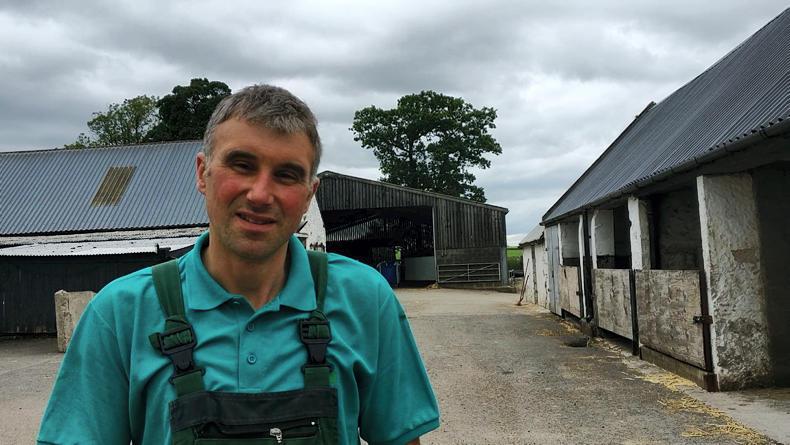
James Sheppard, Grassmillside Farm.
James Sheppard, Grassmillside Farm
Dairy farmers James Sheppard and his father have been MBM veterinary group clients for as long as he can remember. He said when MBM was bought by IVC “we were told there was going to be a change, there was going to be a buyout. Some of the drug products we were getting were going to be cheaper, some would be more expensive. The actual service we were getting was going to change more from a fire brigade service to more of a consultancy type of practice and there would be further charges for consultancy. But our vet bill as a whole? I haven’t noticed a great deal of difference in it from where it was and where it is at the moment. We still get the same service, we still get the same drugs, still get the large animal vets on the end of the phone when and if I need them. [Out of hours service] is just the same as it’s always been. It has always been good.”

Tim Caldwell, clinical director, Avondale Veterinary Group
Avondale Veterinary Group, Strathaven, Scotland
Tim Caldwell, clinical director
Tim Caldwell sold his mixed practice to IVC and stayed on as clinical director. The practice currently has around 10 vets and its turnover is in the region of £2m. The large animal side of the business is mostly dairy.
“The corporates are introducing a number of initiatives to mentor, counsel and tutor vets as they are growing up through their professional careers. Although the farm side is relatively new to IVC, there has been a big development of structure to try and encourage farm vets. Certainly in IVC they do see the farm side as a very healthy investment.
"From my point of view, one of the reasons for joining a corporate was financial. I was coming to the end [of my career] and I couldn’t work out a way to bring in the new vets that I wanted. I had a partner in charge that was a horse vet and he wasn’t interested in what I was doing. So we sold to a corporate, took the money for the shares and I think it has been a very constructive thing for this practice. Within the industry, there are great opportunities for corporates to bring in better generalised standards and processes.
There is a lot of knowledge sharing and we’ve had some good talks with the continental vets on what they do, how they do it, the difference in the industry, the farming attitudes towards veterinary input, involvement of health and welfare specialists.”
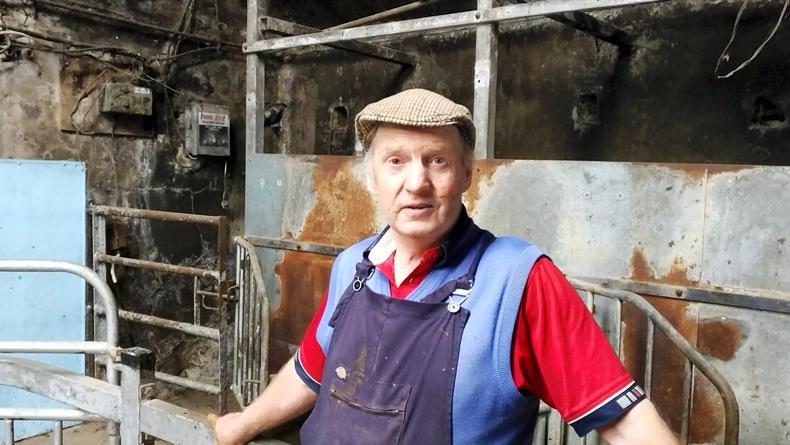
Archie Kerr, Townsend Farm.
Archie Kerr, Townsend Farm
Milking just over 100 cows, Archie Kerr has been with the Avondale Veterinary Group for over 60 years.“The people have changed but the practice has remained the same. I know Avondale has been taken over but as far as I’m concerned, it’s made no difference to us. They’re always at the end of the phone day and night. We’re on a contract which means the visits are all free, we pay for the drugs. It’s a good thing for us, because it means we are not afraid to call the vet. We have regular weekly visits for PD’ing unless something comes up that’s not suiting. We are well served.”
The days of the famous veterinary author James Herriot are in the past. Prevention rather than reaction is becoming the norm.
Today we have a new generation of professionals, who for a combination of reasons, are not going to own and run veterinary practices in the same way that the previous generation did.
The first reason is that lending rules have changed since the recession.
Young vets are not able to get access to the capital needed to become a partner in a veterinary business, removing this as a retirement option for older vets.
Secondly, the next generation of vets are the same as the next generation of farmers, and put a greater focus on a work-life balance.
They are looking for fixed hours, decent pay and a comfortable living. The third issue is farmers can now buy medicines online, get scanners in to do pregnancy tests on cows and ultimately disperse some of their hard earned cash to a wider field of servicemen/women.
Ultimately, that is taking from the more traditional revenue streams keeping large animal vets in business.
So, when a corporate veterinary company comes knocking on the door, it can be an attractive option for a vet that is looking at his or her options.
Many practices in the UK have already been bought by corporate vet companies. The Irish Farmers Journal visited practices belonging to two such companies; Independent Vet Care (IVC) and CVS. The third in the large animal world is Vet Partners.
CVS Group plc describes itself as the largest integrated veterinary services provider in the UK. It owns over 500 practices and has over 1,500 vets, 2,000 nurses and its year end revenue for 2018 was £327.3m IVC was formed later than CVS Group, but it bought 103 practices alone last year, almost two per week. VetPartners has 107 veterinary practices, with 4,750 employees working in more than 400 sites across the UK including its headquarters in York. It recently bought its first practice in Northern Ireland, Parklands Veterinary Group.
Bank finance alone cannot fund the rate of expansion and these corporate veterinary companies are being backed by large scale investment firms such as pensions companies. More recently, large confectionary manufacturers like Nestlé and Mars Inc have entered into the fray.
But what does that mean for farmers? The Irish Farmers Journal spoke to vets who, for whatever reason, decided to sell their practice, and farmers that use the services of those practices.
In the case of IVC
The corporate comes in and buys the business, and the staff are kept on in whatever capacity they were in before. The main vet becomes a clinical director and that person still sets rotas, takes care of the budget and makes all the decisions relevant to the practice. The emphasis in IVC is on local decision-making, while the head office in Bristol employs over 300 administration and accounting staff to deal with payroll, IT, marketing and invoicing. Practices are encouraged to buy drugs from a preferred supplier list. The vets can choose to buy shares in IVC if they so wish, and they can also join some of the different committees within the company. The scale allows the corporate to act in the same way that a purchasing group does and can get better deals when buying medicines, which means vet clinics can compete with the price of animal medicines available online. IVC currently owns four practices in Ireland across 11 sites. All are small animal practices, with the exception of Donegal Animal Hospital, which is mixed.
Michael Fallon, clinical director, MBM veterinary group.
MBM veterinary group, Kilmarnock, Scotland
Michael Fallon, clinical director
Michael is the clinical director of MBM. He has worked in the practice since he graduated and took over as clinical director not long after the practice was sold to IVC and the previous partners retired.
“We’re a mixed vet practice; small animal, equine and farm animal. There are seven of us doing large animal and two vets are on call every night. We’ve around 100 dairy clients and then 300 beef and sheep clients on top of that.
“[When IVC took over] there were some changes and some of them were things we maybe should have been doing anyway. So there has been more of a focus on the management side, but on the clinical side we’ve always been good, always doing things the way they should be and that’s not changed at all.
“There are advantages and disadvantages to both; in a traditional structure you would have bought in to a practice but it was getting really expensive. The education fees for my cohort of vets were around £400,000 or £500,000. So now that’s money you don’t need to find. But the downside of that is you’re not getting all the profit from the business, so you’re potentially making less money over the longer term. But we don’t have the risk. At the end of the day you go home and it’s not my business. You can still buy shares in IVC as a greater group.
“We’ve never really lost large animal vets, the only people we’ve lost is through retirement. From when I’ve started there have only been three replacements, one when it was private practice and two when it was corporate and we’ve not really had any trouble recruiting [despite a shortage in large animal vets].”

James Sheppard, Grassmillside Farm.
James Sheppard, Grassmillside Farm
Dairy farmers James Sheppard and his father have been MBM veterinary group clients for as long as he can remember. He said when MBM was bought by IVC “we were told there was going to be a change, there was going to be a buyout. Some of the drug products we were getting were going to be cheaper, some would be more expensive. The actual service we were getting was going to change more from a fire brigade service to more of a consultancy type of practice and there would be further charges for consultancy. But our vet bill as a whole? I haven’t noticed a great deal of difference in it from where it was and where it is at the moment. We still get the same service, we still get the same drugs, still get the large animal vets on the end of the phone when and if I need them. [Out of hours service] is just the same as it’s always been. It has always been good.”

Tim Caldwell, clinical director, Avondale Veterinary Group
Avondale Veterinary Group, Strathaven, Scotland
Tim Caldwell, clinical director
Tim Caldwell sold his mixed practice to IVC and stayed on as clinical director. The practice currently has around 10 vets and its turnover is in the region of £2m. The large animal side of the business is mostly dairy.
“The corporates are introducing a number of initiatives to mentor, counsel and tutor vets as they are growing up through their professional careers. Although the farm side is relatively new to IVC, there has been a big development of structure to try and encourage farm vets. Certainly in IVC they do see the farm side as a very healthy investment.
"From my point of view, one of the reasons for joining a corporate was financial. I was coming to the end [of my career] and I couldn’t work out a way to bring in the new vets that I wanted. I had a partner in charge that was a horse vet and he wasn’t interested in what I was doing. So we sold to a corporate, took the money for the shares and I think it has been a very constructive thing for this practice. Within the industry, there are great opportunities for corporates to bring in better generalised standards and processes.
There is a lot of knowledge sharing and we’ve had some good talks with the continental vets on what they do, how they do it, the difference in the industry, the farming attitudes towards veterinary input, involvement of health and welfare specialists.”

Archie Kerr, Townsend Farm.
Archie Kerr, Townsend Farm
Milking just over 100 cows, Archie Kerr has been with the Avondale Veterinary Group for over 60 years.“The people have changed but the practice has remained the same. I know Avondale has been taken over but as far as I’m concerned, it’s made no difference to us. They’re always at the end of the phone day and night. We’re on a contract which means the visits are all free, we pay for the drugs. It’s a good thing for us, because it means we are not afraid to call the vet. We have regular weekly visits for PD’ing unless something comes up that’s not suiting. We are well served.”








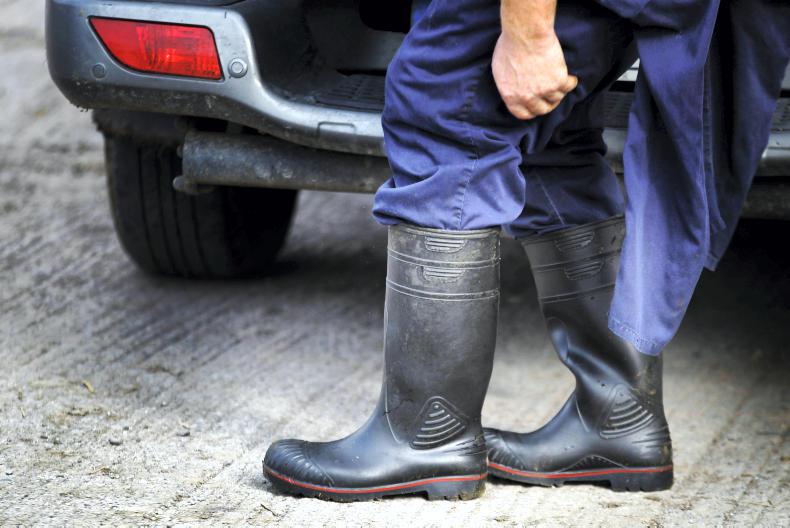
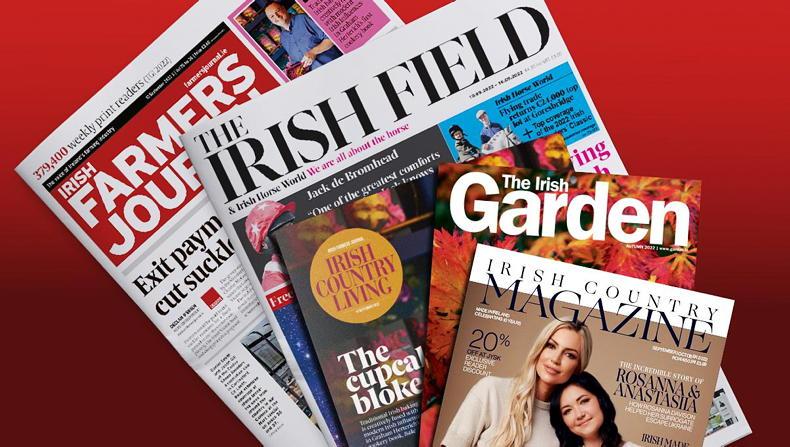
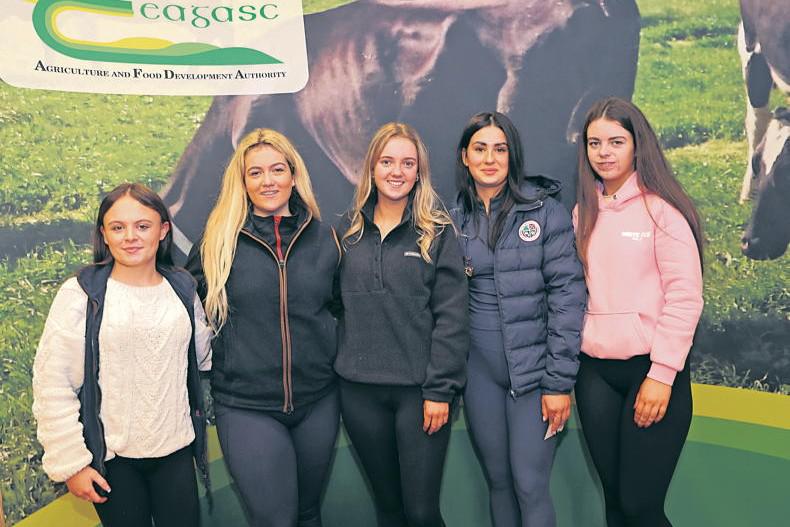
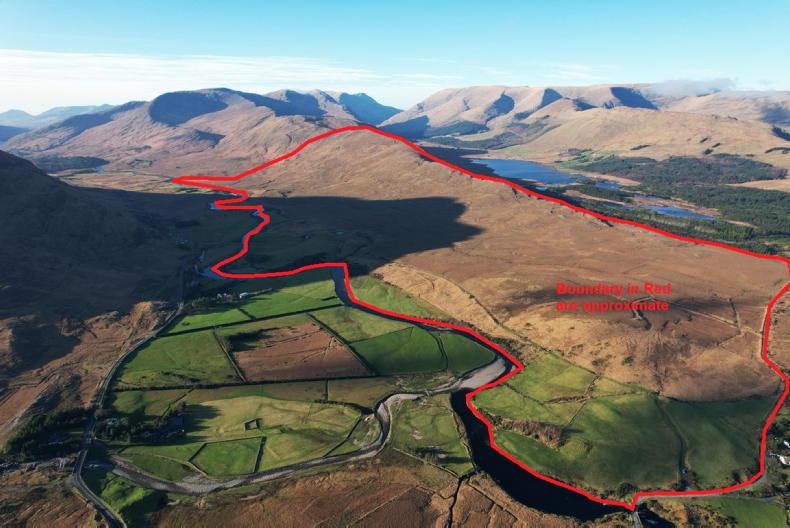
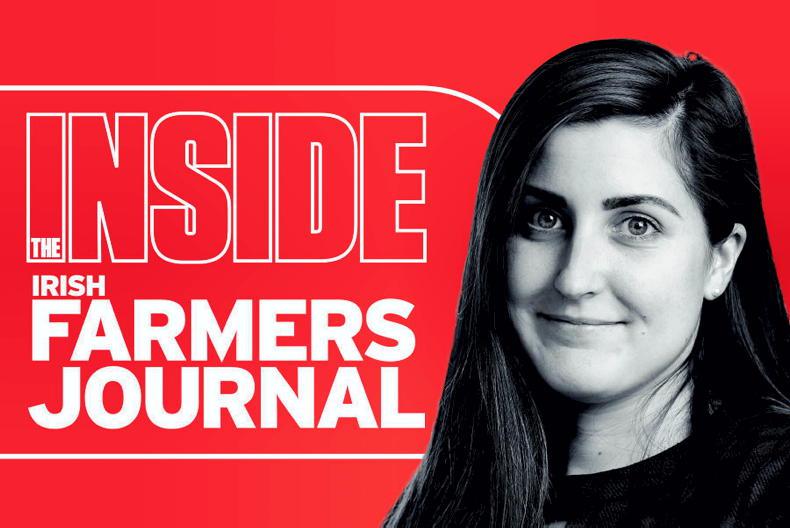
SHARING OPTIONS